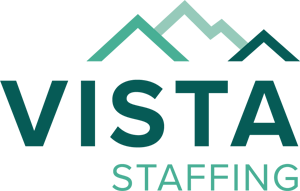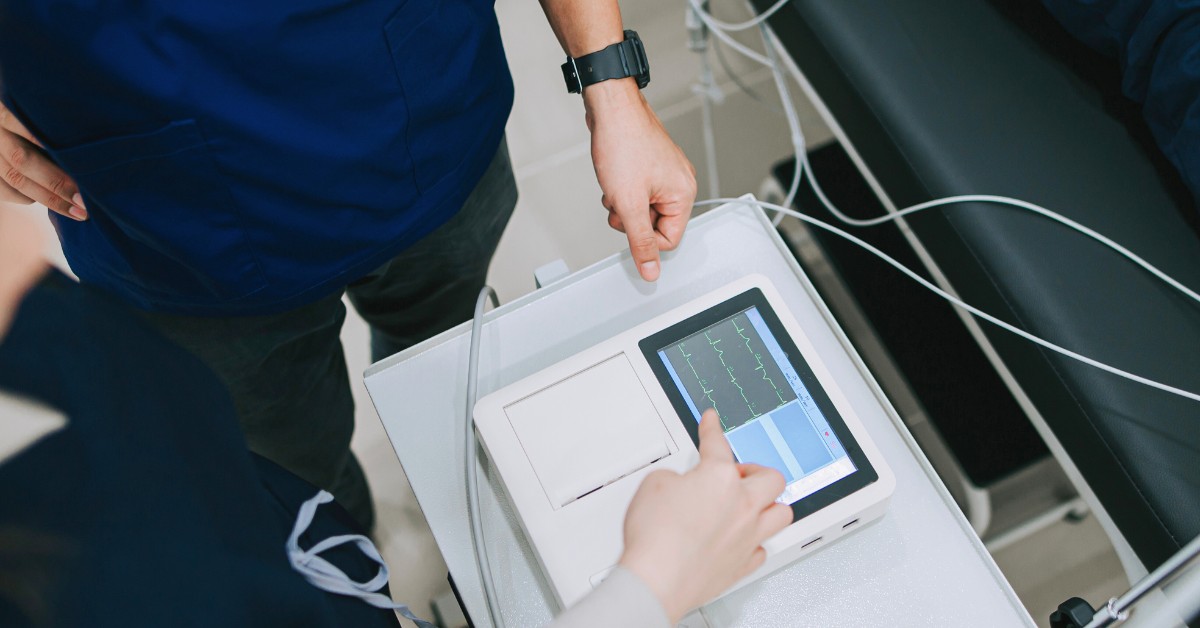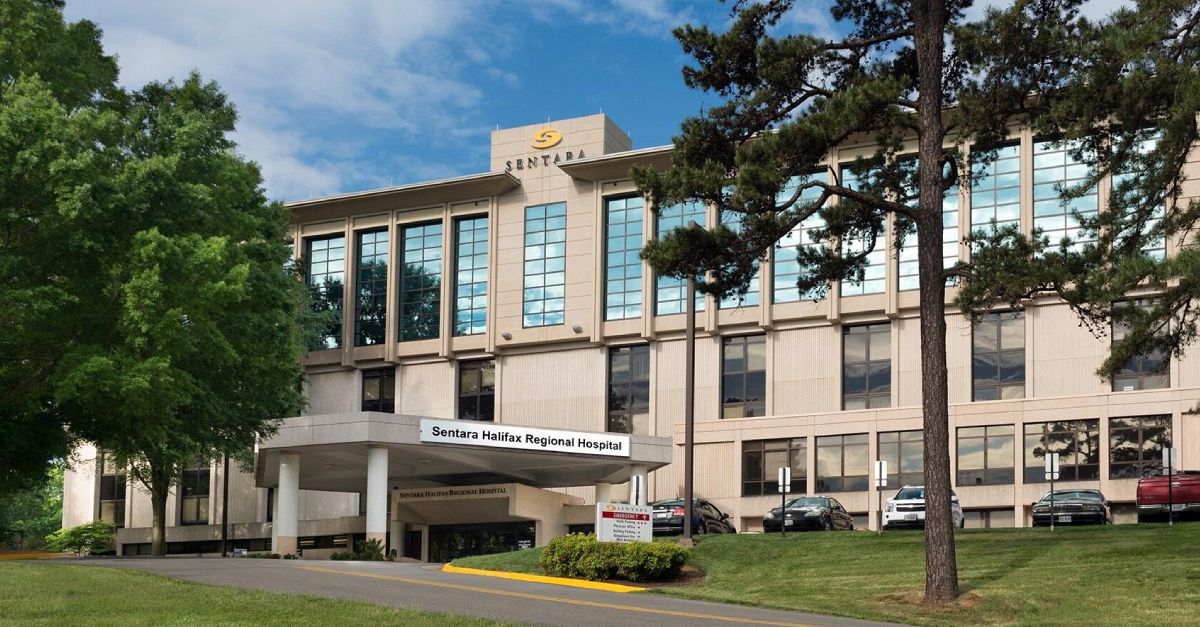
Mental Health Check: Use VitalSolution Tools to Take Care of YOU
May is National Mental Health Awareness Month, but really, every day should be a day where you check in with yourself and take stock of your mental well-being.
While cath lab and OR roles can be both physically and mentally taxing, VitalSolution has tools to help you take care of yourself, as well as your patients.
The Increase in COVID-19 and Burnout
Medicine is no stranger to stressful situations. And in the cath lab, stress can come in many forms for different positions.
In 2021, the American College of Cardiology (ACC) presented findings that showed burnout increased from 20% to 39% among cardiologists during the pandemic.
But it’s not just doctors who have felt increased mental stress over the last few years. In fact, there have been studies showing that in the cath lab, burnout was seen in more than a third of support staff, including registered nurses (RNs) and registered cardiovascular invasive specialists (RCISs). During the pandemic, burnout more than doubled to 69% in the same group.
Is it Burnout or Depression?
While burnout is very real, it can also present symptoms that are very similar to depression. It’s important to know how to spot the difference and what you can do to get help.
Depression Symptoms:
- Low self-esteem
- Hopelessness
- Suicidal thoughts or considering self-harm
- Sad or anxious feelings
- Insomnia or sleeping too much
- Irritability or restlessness
- Changes in eating (such as eating too much or too little)
Depression is a serious mental health concern, but if you are experiencing it, you can have trouble self-identifying that there is a problem. If you notice a coworker, friend, or family member experiencing these symptoms, you can work with them to get help. Supporting each other in a judgment-free way is so key, especially in medicine. Groups like the Institute for Healthcare Improvement advocate for dropping stigmas around physicians and depression, especially since so many are affected in the field.
Burnout Symptoms:
- Exhaustion (physical and mental energy is extremely low)
- Depersonalization (including excessive sarcasm, cynicism, and “compassion fatigue”)
- Lack of efficacy (slowing down work and not caring about performance or results)
Identifying depression (or burnout) can be tricky, but so too is the stigma among those in the medical field, who worry that any crack in their tough facade (like admitting they are living with depression or other mental health issues) would be seen as a weakness. Of course, this is exactly why we should speak up more and take steps to take care of ourselves as well as our colleagues.
Check out Dr. Ed Ellison’s TED Talk on burnout within the medical community. Here are some key takeaways from the event:
- The field of medicine is facing significant challenges and strains that are often hidden and not discussed.
- Doctors, who are perfectionists and prioritize the needs of others, are prone to experiencing burnout.
- Factors contributing to burnout include loss of control over work, the increasing complexity of medical care, and inefficient workflows caused by electronic health records.
- Burnout among physicians is associated with emotional and physical exhaustion, detachment, anxiety, depression, and even suicide, with alarming rates among both male and female doctors.
Fighting Burnout: Take Time For Yourself
Hospital shifts can be long, to say the least, but that doesn’t mean that they last forever. Even during the busiest times, we should take care to…well, take care of ourselves on our time “off.”
This might mean embracing hobbies that play to improving mental health, like exercise, spending time outdoors, and taking a break from screen time.
Studies show that all of these activities can improve your mental health, but they’re not the only options.
To make time for that hobby, here are some ways to fight excuses:
- Schedule vacation time that includes activities you love, and possibly also includes plenty of relaxation and time away from screens. Don’t work on vacation – this defeats the purpose of a break – and make sure that your team gives you space to be “off” when you’re supposed to be.
- Practice saying “no” to tasks that encroach on your downtime. This could include “scheduling” downtime into your schedule (and keeping it there) or asking for help and delegating tasks. Sometimes it’s hard for us to ask for help, but even your family members want you to have good mental health, and they’ll work with you if you’re feeling overwhelmed, even when you’re away from work.
- Pay attention to your daily routine and note when you’re doing “mindless” tasks like scrolling social media or checking out a TV show. You might be able to use that time to improve your health away from screens by engaging in a moment with yourself. This could mean adding guided meditation time or even some gentle walks around the block. Guided meditation has been shown to increase medical teams’ performance while on the job, improving patient safety and mindfulness in hospitals.
- Consider “micro-breaks” and how they could fit into your schedule during the day. Going at 100 miles per hour all the time is a recipe for burnout (for you and your car). Try recognizing when you have a moment – even if it’s just 30 seconds – to stop working and take stock of what’s going on with your mental health. Maybe practice some deep breathing techniques to lower stress, or listen to a favorite song and truly spend time recognizing your joy with the music. Even a 30-second dance party can help relieve stress!
Get Mental Health Help With the Ingenovis Health ACT Program
The Ingenovis Health ACT (Advocacy, Career, Tools) program helps those in the medical field bring awareness to challenges and issues while working together to keep more medical careers flourishing. You can check out the tools available to VitalSolution’s team members, including everything from mental health resources like free monthly webinars to free exercise classes online.
There are also resources available only to VitalSolution physicians, like a 24/7 NurseLine, confidential services through EmployeeConnect, an online knowledge hub, financial and family services and much more.
There are also nurse-specific benefits available through a new partnership with Operation Happy Nurse – a simple name with a big goal: to improve nurses’ overall job satisfaction.
Transform Burnout into Well-Being with the AIMIcare App
VitalSolution physicians and healthcare professionals can also take advantage of burnout prevention services through the new AIMIcare program.
Through a handy app, physicians can get peer-to-peer support, take accredited courses to identify and fight burnout, get tips on journaling to track their journey, and take advantage of guidance, insights, and meditations specifically tailored to those in the medical field.
Watch this brief introduction to AIMIcare by Dr. Barry Kerzin, founder and president of the Altruism In Medicine Institute.
Additional Physician Mental Health Support
Additional sources for physicians experiencing mental health problems include:
Physician Support Line
A national and confidential support line service made up of 600+ volunteer psychiatrists who offer peer support for physician colleagues. Open 8 a.m. to 1 a.m. EST, 7 days a week; no appointment is necessary.
(888) 409-0141
physiciansupportline.com
Peer Support for Physicians
PeerRxMed™ provides a free peer-to-peer program to support well-being.
peerrxmed.com
Other Resources for Mental Health Help
There are also many national resources to reach out by phone, text, or even chat when you’re worried about your mental health.
National Suicide Prevention Lifeline
Open 24/7. Free and confidential.
(800) 273-TALK (8255)
suicidepreventionlifeline.org
Crisis Text Line
Free 24/7 support by text. (U.S. and Canada)
Text HOME to 741741
crisistextline.org
 company
company 
 (866) 755-7519
(866) 755-7519











